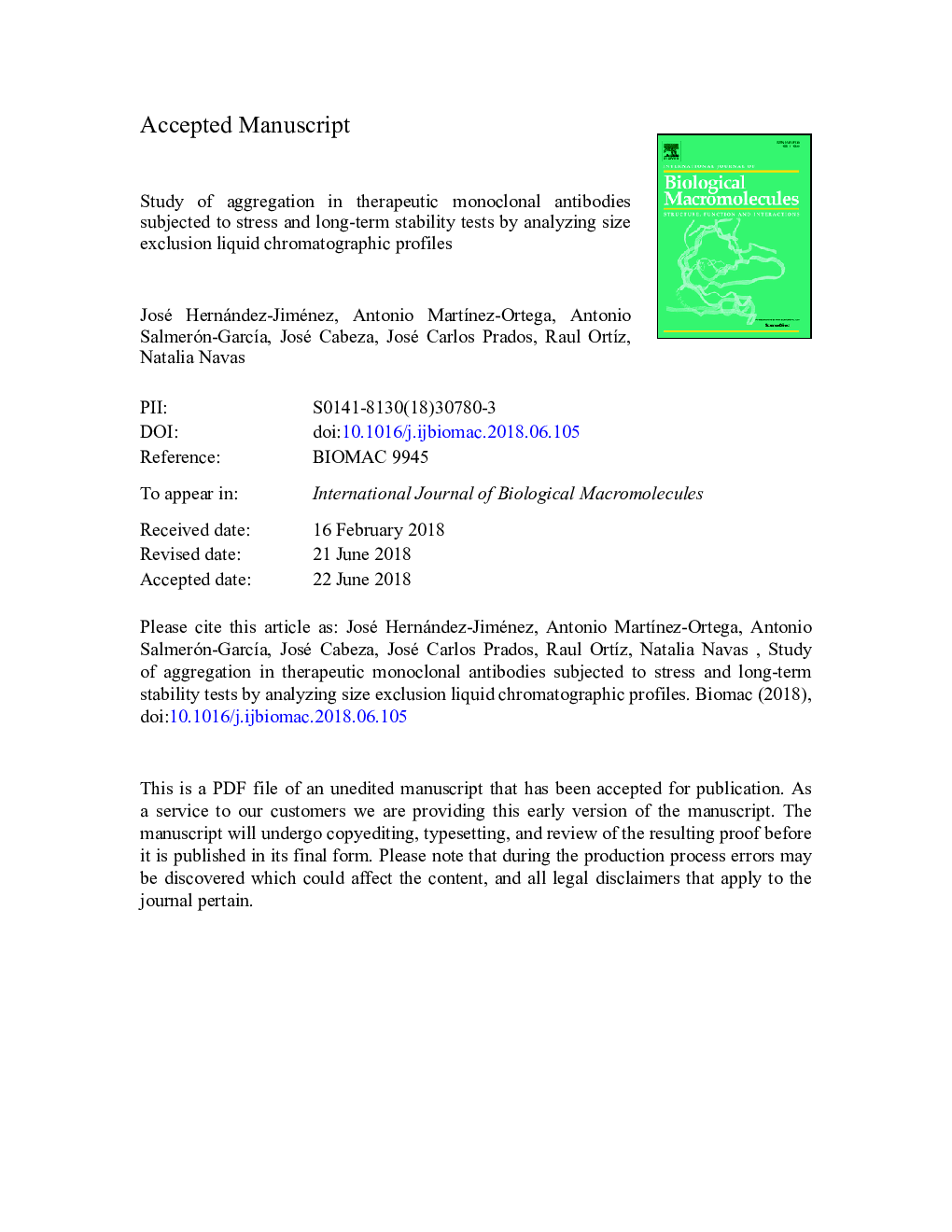| Article ID | Journal | Published Year | Pages | File Type |
|---|---|---|---|---|
| 8326841 | International Journal of Biological Macromolecules | 2018 | 40 Pages |
Abstract
Research into stress and stability is essential during the development of therapeutic proteins to ensure quality and safety of the final medicine. Greater knowledge of the effects of stress on aggregation can help avoid undesirable conformational and colloidal instabilities. With this in mind we investigated five marketed therapeutic monoclonal antibodies (mAbs) namely bebacizumab (BVZ), cetuximab (CTX), infliximab (IFX), rituximab (RTX) and tratuzumab (TTZ) in their innovative medicines. These were submitted to different controlled stresses, to freeze/thaw cycles and used for long-term stability studies once the vials were opened. Aggregate formation was tracked by analyzing the mAbs chromatographic profiles by size-exclusion liquid chromatography coupled with diode array detection. Results indicated that the tendency to aggregate depends on the particular stress conditions and on the concentration and nature of the mAb, even though all share similar IgG1-structure. Fragmentation of the mAb produced by the stress was probably due to the rupture of cystines between the two heavy chains. Regarding stability study, BVZ, RTX and TTZ proved to be the most stable when stored at 4â¯Â°C and in freeze/thaw cycles with no tendency to form aggregates. INF tends to form aggregates at 0.5â¯mg/mL, while in CTX, the most unstable, degradation was detected.
Related Topics
Life Sciences
Biochemistry, Genetics and Molecular Biology
Biochemistry
Authors
José Hernández-Jiménez, Antonio MartÃnez-Ortega, Antonio Salmerón-GarcÃa, José Cabeza, José Carlos Prados, Raul OrtÃz, Natalia Navas,
